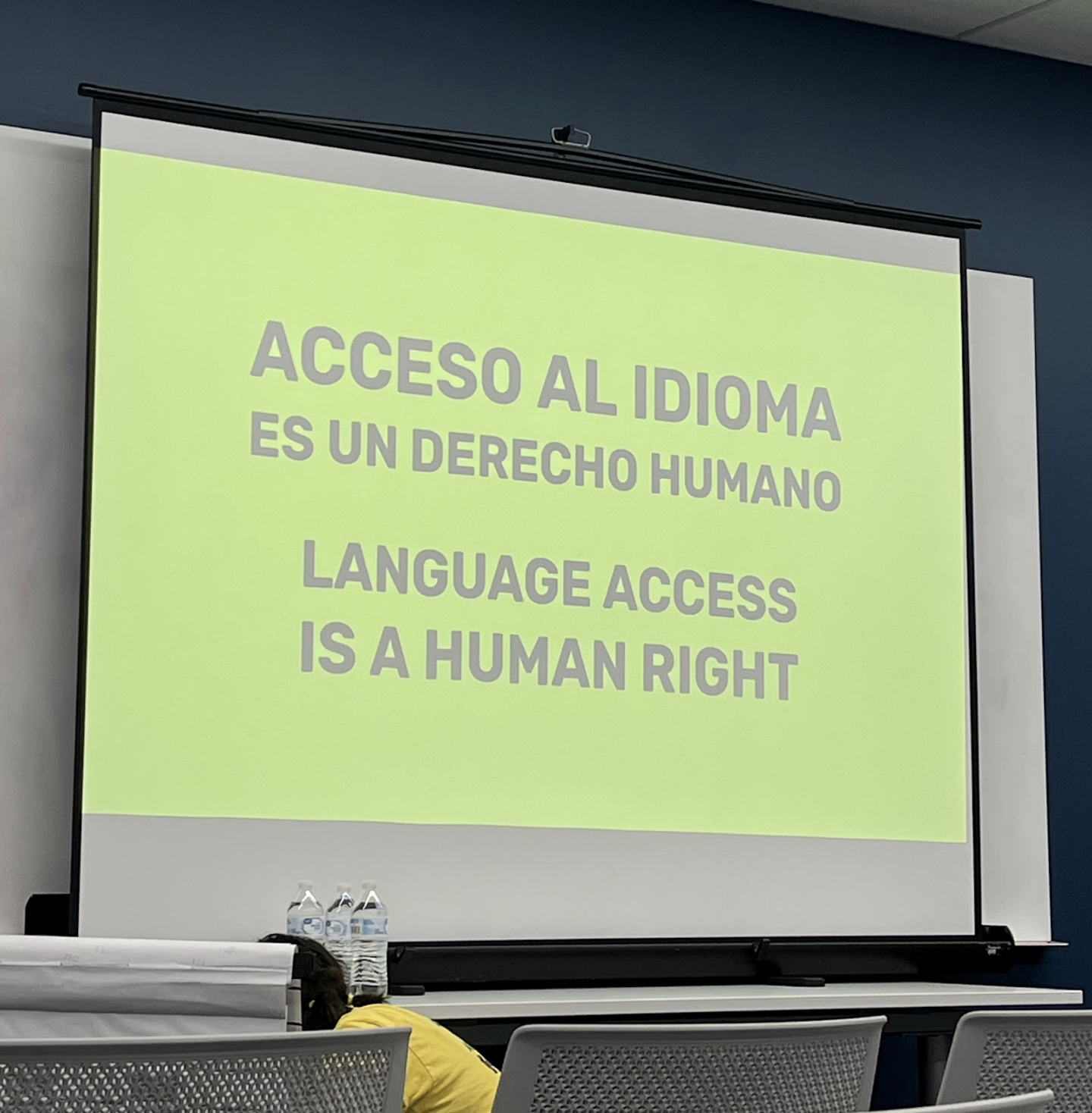
Language justice includes the right everyone has to communicate in their own language and a respect for the language rights of all people. Language access means that no matter what language someone speaks, they are treated equitably and they have equal access to the same information at the same quality as everyone else.
Language access is a human right, for all people, all the time, no matter what. It’s a neighborhood issue; a public health issue; a civil rights issue; an immigrant rights issue. A fundamental component of democracy.
As of January 2024, the City Government of Kansas City, Missouri does not have a comprehensive language access program for people who have a limited ability to read, speak, write, or understand English. This means that many of our neighbors are left out of decisions that impact them and are excluded from the services and privileges that English-speaking Kansas City residents have access to. This is an injustice.
Regardless of what language someone speaks, or where they’re from, we all deserve a voice and a seat at the table. This is a critical week for residents of the Northeast. On February 22nd, City Council has an opportunity to right this wrong when they will vote on whether or not to establish and fund an Office of Language Access.
As a Northeast resident I can say that language access changes lives. The Lykins Neighborhood Association, which I work for, is an example of what is possible when language access is provided. Almost half of Lykins residents are people whose primary language is not English, yet two years ago, there were almost no immigrants or non-English speaking representatives on the Board or at neighborhood meetings. When we started translating our communications and providing interpretation at every meeting, our non-English speaking neighbors came. New leadership was elected and the conversation shifted as the neighborhood association became more inclusive and representative of itself. have provided language access for my community at City Council meetings, PIAC (Public Improvement Advisory Committee) meetings, and more City events than I can count. I do this because I want my neighbors to have a say in what’s going on in our city, but this shouldn’t fall on the shoulders of residents like me because I also would like to participate in these events. In 2000, 70% of residents in the Westside identified as Latino/a/e. Now, that number is less than 50%. How did that happen? There’s a cost when thousands of residents don’t have a say in what happens in our own city. There is a cost when City leadership prioritizes flashy initiatives, boutique hotels, and international recognition over the needs of its own people. People get left out and left behind, and eventually, we just disappear. Without the ability for those of us who don’t speak English to engage with
decisions that impact our community, the Northeast could suffer the same fate as the Westside. Language access is just the beginning. With access to hear and be heard comes connection and agency; the right to be angry or excited about what’s going on in our City; the ability to see local policy reflect our vision.
A better Kansas City is possible, one where our local government values all residents and treats all of us with dignity and respect. Passing this ordinance to establish and fund an Office of Language Access is the first step toward a better Kansas City. For more information, read the Advocates for Immigrant Rights and Reconciliation and KC Tenants Language Access report here: bit.ly/KCLangaccess.
Sincerely,
-Ricardo Flores
Programming Director
Lykins Neighborhood Association
















